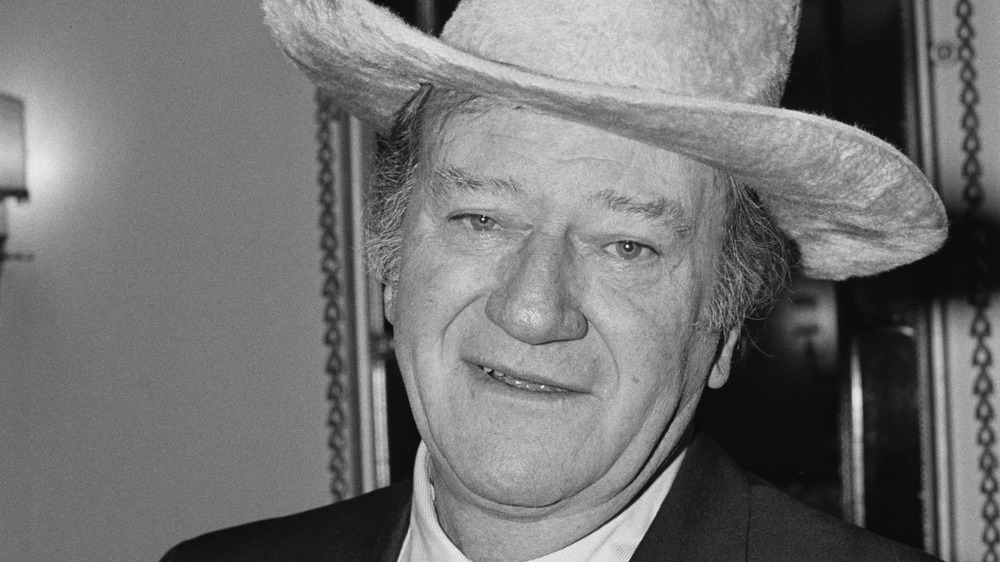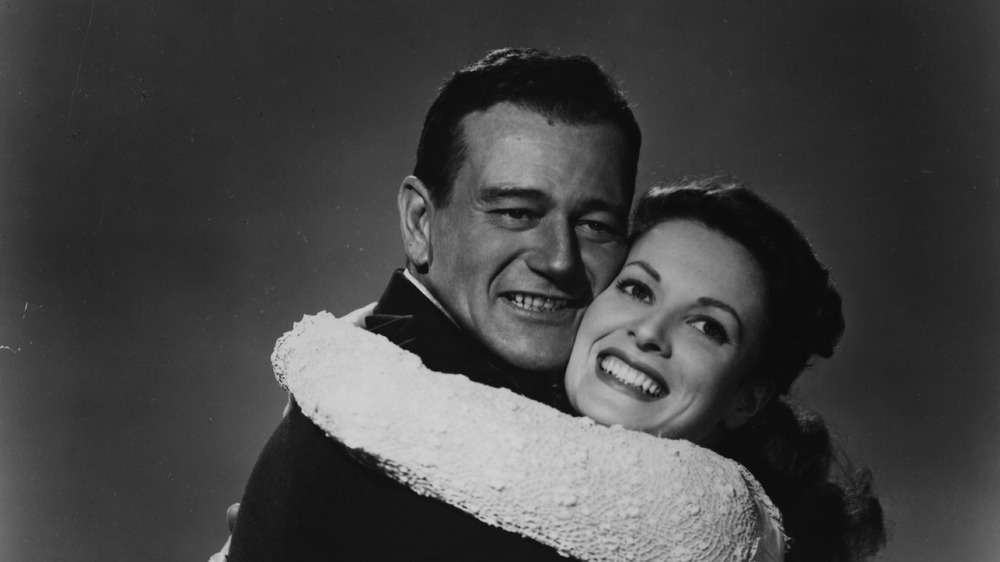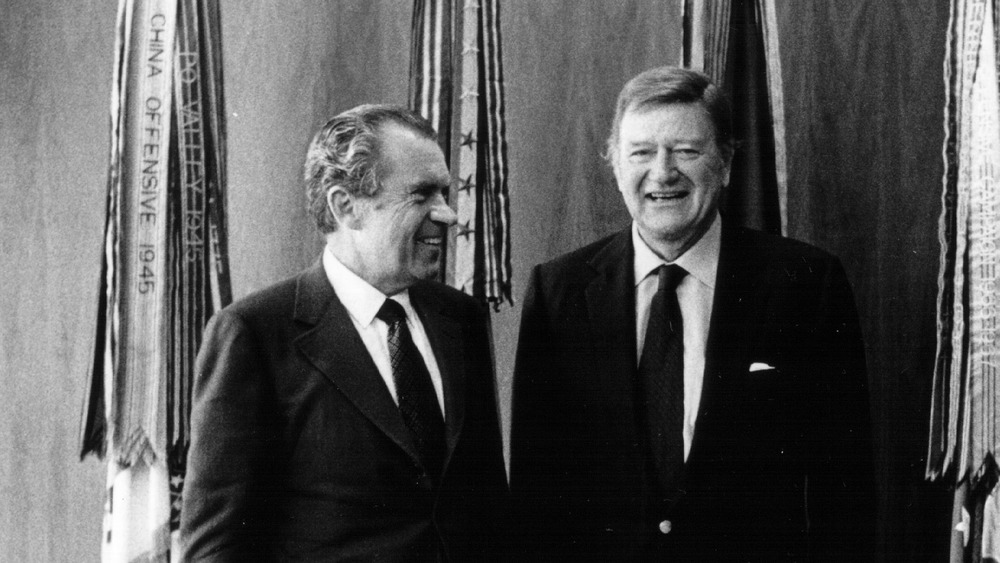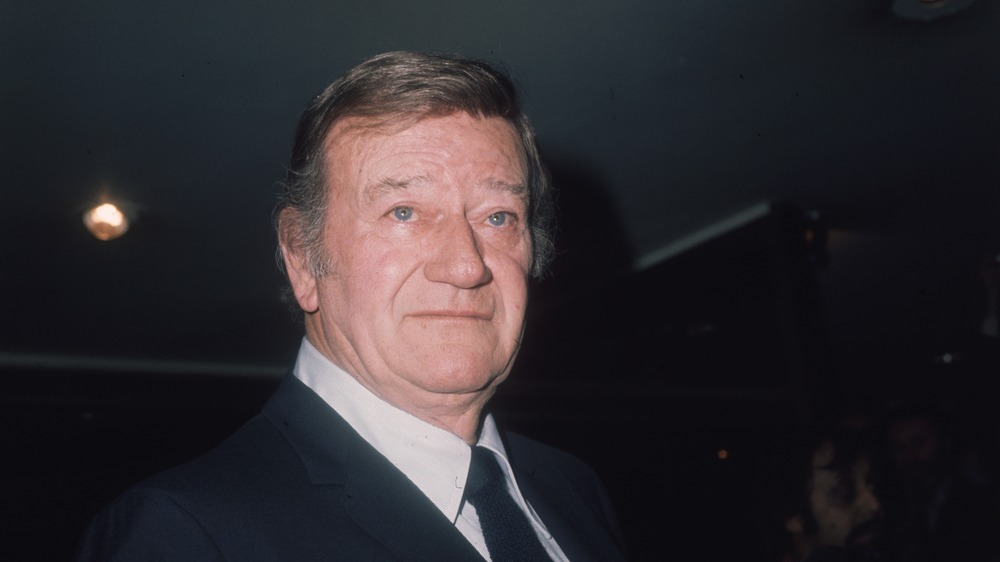The Truth About John Wayne Revealed
John Wayne was one of the most iconic stars to ever appear on the silver screen, embodying American masculinity through his roles in Westerns and war movies. Since his death in 1979, however, his legacy as an actor and his personal life have both been the subject of debate.
The Duke was actually born with the name Marion Robert Morrison in 1907 in Iowa. When he was seven, his family moved out to California, where the young boy excelled at football and theatre. His athletic talent, in particular, led to a football scholarship at the University of Southern California, although a bodysurfing accident ended his career and he left college after only two years.
According to John Wayne Heritage, Wayne then started his film career as a prop man and occasional extra on the Fox lot. He broke through as a bonafide star in the 1930 Western The Big Trail, at which point he changed his name to John Wayne on the suggestion of Fox boss Winfield Sheehan (who, understandably, didn't think "Marion Morrison" seemed rugged enough.)
Wayne's movie persona was solidified when his friend, the legendary director John Ford, cast him in Stagecoach in 1939. The film won two Oscars and carved out the type of tough-talking role Wayne would play in later films like The Searchers, The Quiet Man, and True Grit. The man himself, on the other hand, couldn't always live up to that archetype of rugged American individualism.
John Wayne wasn't quite the tough straight-shooter he played in movies
John Wayne may have taken part in many thrilling on-screen battles, playing war heroes in films like Flying Tigers, Sands of Iwo Jima, and The Longest Day. In reality, however, Wayne was exempted from military service when World War II broke out. As a 34-year old father of four, he received a 3-A (family deferment) after Pearl Harbor and never had to fight. So while other movie stars like Paul Newman, Henry Fonda, and Jimmy Stewart put their careers on hold to enlist, Wayne benefited from their absence and became Hollywood's biggest leading man.
Letters (via War History Online) have emerged over the years suggesting that Wayne was looking for a way to join up, but Republic Studios was firmly against anything that would threaten the money he earned them in ticket sales. His inability to serve earned him the unenviable title of draft dodger later in life, which caused a rift between him and his friend John Ford, who became a commander in the U.S. Navy.
His image as a Western hero has also been called into question by the revelation that he might not have been a fan of horses. According to his biographer Scott Eyman, Wayne reportedly said, "I don't get on a horse unless they pay me," and his son Michael was taught how to ride by various stuntmen on sets, rather than his famous father.
John Wayne's political views have resurfaced over the years
Famous for his Republican politics, John Wayne was an enthusiastic supporter of Richard Nixon. During the era of the Hollywood blacklist, Wayne served as the president of the MPAA, enforcing the censorship of actors and writers who were associated with the Communist party. His views have even prompted some to suggest that the John Wayne Airport should be renamed.
In particular, his legendarily awful and racist 1971 Playboy interview tends to resurface every few years. Discussing the civil rights movement, the actor told Playboy "I believe in white supremacy until the blacks are educated to a point of responsibility." He also described the movie Midnight Cowboy in homophobic terms, and denied feeling any empathy for the Native Americans often featured in his movies. "I don't feel we did wrong in taking this great country away from them, if that's what you're asking," Wayne said, adding: "There were great numbers of people who needed new land, and the Indians were selfishly trying to keep it for themselves."
Wayne's later years, his marriages and the mysterious cause of his death
According to critic Emmanuel Levy, John Wayne was a lot more awkward around women than you would imagine from his movies. Despite Wayne's supposed shyness, he was married three times. His first marriage to Josephine Saenz, with whom he had four children, was broken up by an affair with Marlene Dietrich after Wayne filmed Seven Sinners opposite her in 1940. After two more marriages and three more children, he lived with his secretary Pat Stacey during his last years.
Old age didn't slow down Wayne's career, and not just because he had already been wearing a hairpiece since the late '40s. The Duke, however, couldn't outride cancer, which he had first developed in 1964. The shocking truth behind his illness, however, was that it probably was caused by radiation exposure ten years earlier.
The set of The Conqueror, a film about Genghis Khan that Wayne made in 1954, was only 100 miles from an atomic bomb testing site. According to The Guardian, they filmed downwind from the Nevada site, leading 91 of the 220 cast and crew members to later develop cancer. John Wayne was among them, and he died of stomach cancer in 1979, leaving an astonishing life and career behind.




